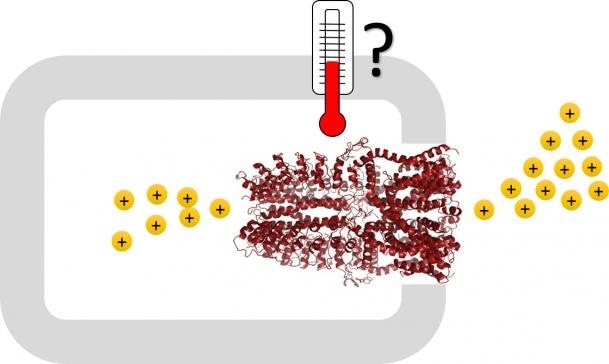Feb 10 2017
Researchers at Lund University in Sweden have taken an important step on the road to understanding the underlying mechanism of how and why animals can feel pain in connection with cold or heat. However, according to the study, temperature is just one triggering factor – horseradish, mustard, cinnamon and wasabi have a similar effect.

Picture: Sabeen Survery and Urban Johanson
A few years ago, the research group produced a human receptor protein and tested it in an artificial cell membrane. Similar studies have now been conducted on a receptor of the malaria mosquito, and the results are consistent. All the evidence suggest that the basic underlying mechanism of the temperature sensor function is the same in insects as in vertebrates.
The new study shows that the inherent ion channel in the mosquito receptor is activated by heat. It also shows that the first part of the receptor can be removed without destroying ion channel or the ability to react to temperature. So far, potential applications are relatively far off into the future. However, the researchers do know the areas in which the findings may be of significance:
“Different ways of preventing activation of the receptor protein may lead to new drugs and treatments for pain and itching. The substances that activate can instead be developed into effective treatments, designed to deter specific insects that carry various infectious agents”, says Urban Johanson, professor at the Department of Chemistry.
In this new study, the researchers produced two versions of the pure protein: one complete protein and one without the first half. Subsequently, they inserted the protein into an artificial cell membrane and measured the flow through individual ion channels – both at different temperatures, and after adding substances which can be found in, for instance, wasabi and cinnamon. Using spectroscopy, they were able to monitor the structural changes in the ion channel.
“There are similarities in the structural changes, regardless of whether the change is caused by heat or wasabi. The molecular mechanism of how this happens is not yet clear, so we will now proceed with a more detailed study”, says Urban Johanson.
Malaria mosquitos sensitive to horseradish
Source: http://www.lunduniversity.lu.se/article/watch-malaria-mosquitos-sensitive-to-horseradish